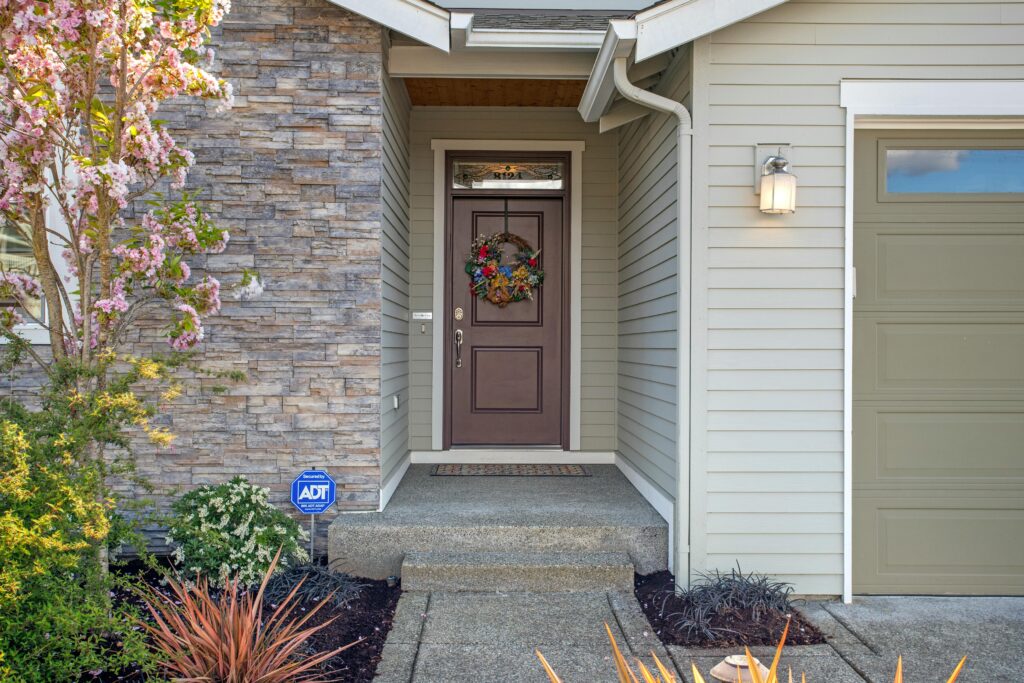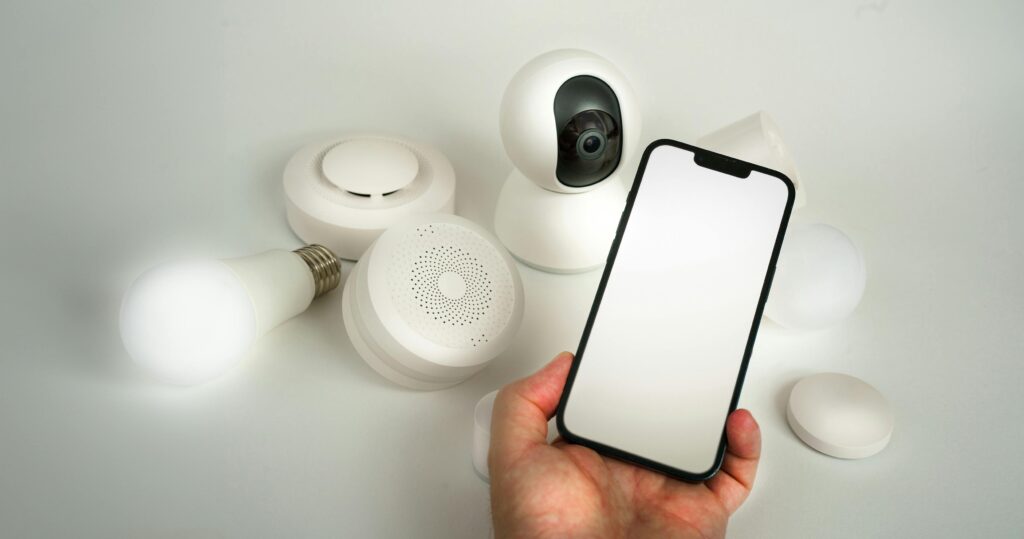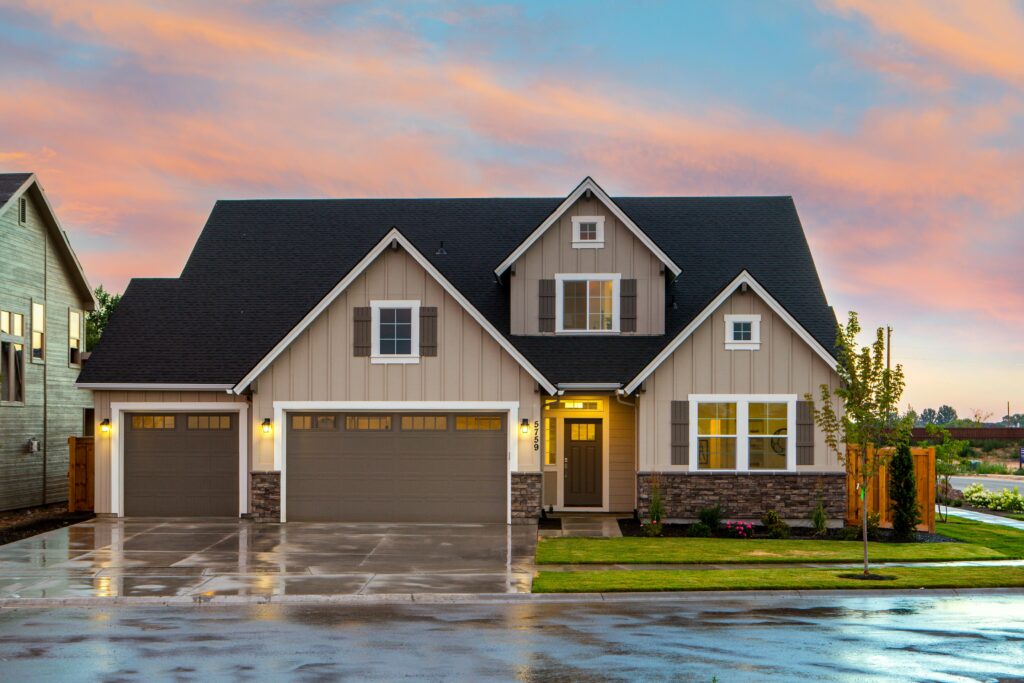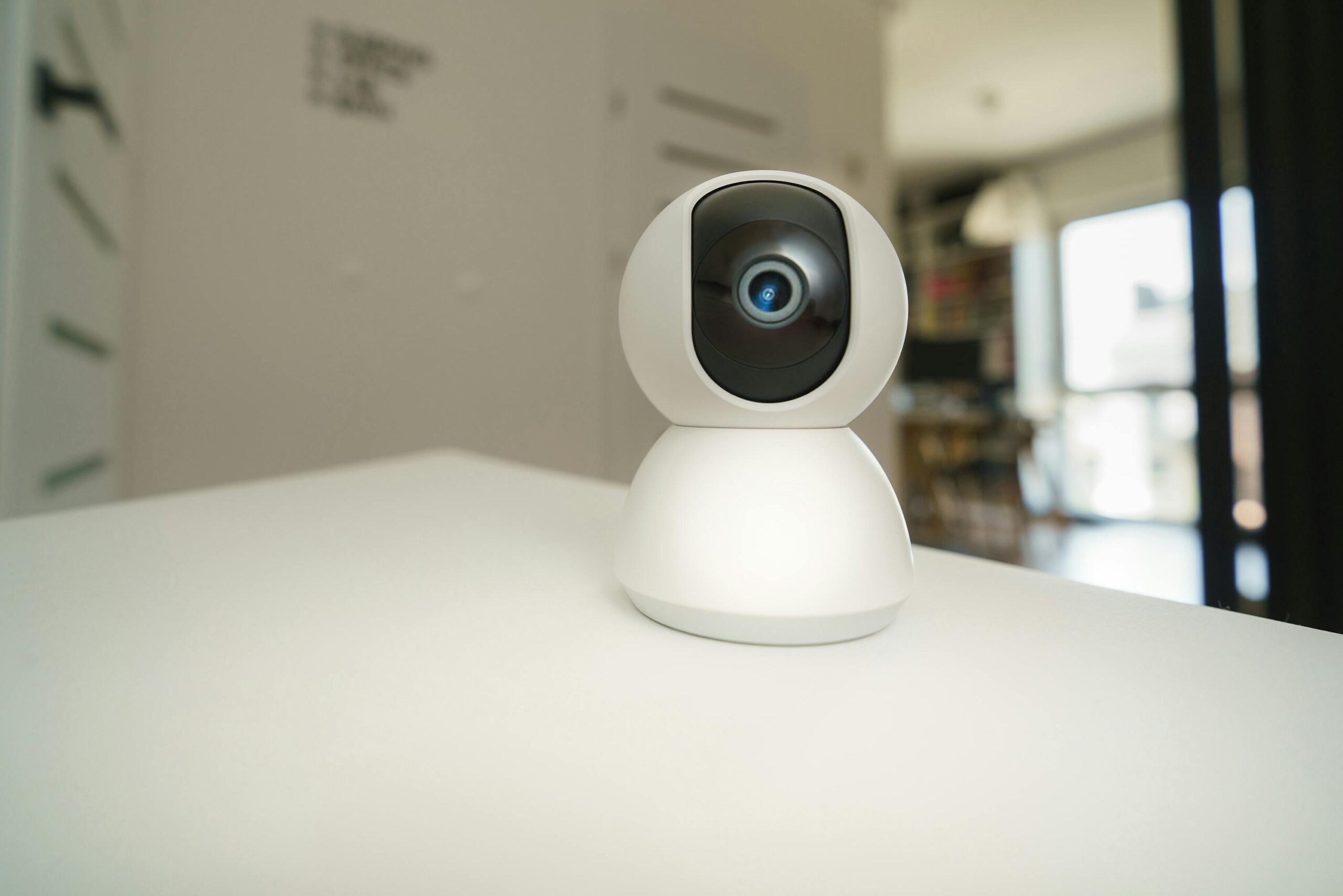Disclosure: This post may contain affiliate links. As an Amazon Associate, I earn from qualifying purchases. If you click through and make a purchase, I may earn a small commission at no extra cost to you.
In 2025, home security systems are more advanced and accessible than ever before. With a wide range of options, homeowners can find systems that fit their needs and budgets. Whether you prefer a wired home security alarm system or a wireless setup, there’s something for everyone.
The market offers both DIY and professionally installed systems. DIY home security systems are popular for their affordability and ease of installation. They allow homeowners to customize their security setup without breaking the bank. On the other hand, professionally installed systems offer comprehensive protection with expert support. Choosing the best home security system can be overwhelming. With so many options, it’s important to consider your specific needs. Do you want a system with no monthly fees? Or perhaps a system with top-rated home security cameras? These are just a few factors to consider.
The best self-monitored home security systems with no monthly fees are ideal for budget-conscious consumers. These systems provide effective security without ongoing costs. They are perfect for those who want to avoid long-term contracts.
In this guide, we’ll explore the top home security systems of 2025. We’ll cover everything from features and pricing to customer reviews. Our goal is to help you make an informed decision. Whether you’re a tech-savvy homeowner or a renter looking for simple solutions, there’s a system for you. Stay tuned as we dive into the world of home security. Discover the best options for every budget and lifestyle. Your home deserves the best protection available. Let’s find the perfect security system for you.
The Importance of Home Security
Home security is essential for ensuring personal safety and protecting valuable assets. In today’s world, homeowners face various security threats. Having a reliable security system can deter potential intruders and provide peace of mind.
A good security system does more than just protect against burglaries. It also helps in emergency situations like fires or medical emergencies. Many modern systems alert emergency services, ensuring a swift response when needed. For families, safety is a top priority. Parents want to ensure their children are safe, both inside and outside the home. Security systems provide an extra layer of protection, monitoring activities and alerting parents to any unusual events.
Moreover, investing in home security often leads to financial benefits. Many insurance companies offer reduced premiums for homes with approved security measures. This can help homeowners save money over time.
To summarize, the importance of home security includes:
- Personal safety and asset protection
- Emergency response and alerts
- Improved community safety
- Potential insurance premium discounts
In conclusion, a home security system is a crucial investment for safeguarding your home and loved ones. Whether you choose a wired or wireless option, the peace of mind it provides is invaluable.
Overview of Home Security Options
The landscape of home security systems is vast and varied. With technological advancements, homeowners have more options than ever to protect their properties. These systems range from basic setups to advanced solutions with smart capabilities.
Traditional wired home security alarm systems are known for their reliability. They connect components through physical wires, reducing interference risks. However, they often require professional installation, which might increase initial setup costs.
On the other hand, wireless systems offer greater flexibility and are typically easier to install. They are ideal for renters or those who move frequently. Wireless systems often come with mobile applications, allowing remote monitoring and control.
DIY home security systems have surged in popularity in recent years. These systems allow homeowners to customize their security setup according to their specific needs. DIY options are generally more cost-effective, with many not requiring subscription fees.
For those seeking comprehensive coverage, professional monitoring services are available. These services provide continuous monitoring and immediate response in case of an alarm trigger. Although they often incur a monthly fee, the added layer of security can be worth the cost.
Here’s a brief overview of the primary home security options:
- Wired Systems: Reliable but may need professional installation.
- Wireless Systems: Flexible, ideal for renters or tech enthusiasts.
- DIY Systems: Cost-effective, customizable, and great for self-monitors.
- Professional Monitoring Services: Offer 24/7 monitoring for added security.
Overall, choosing the right home security option depends on individual preferences, budget, and lifestyle. Understanding these options can help homeowners make informed decisions to secure their homes effectively.
Best Home Security Systems of 2025
The year 2025 has introduced innovative home security systems that cater to various needs and budgets. These systems incorporate the latest technology trends, ensuring top-tier protection for your home.
Several systems stand out due to their unique features, ease of use, and reliability. Choosing the best home security system involves considering factors like installation, monitoring options, and integration with smart home devices.

1. ADT Home Security
ADT remains a leading name in the home security industry, known for its comprehensive coverage and professional service. Offering both wired and wireless systems, ADT provides a variety of options to suit different home security needs.
ADT stands out with its robust monitoring services, available nationwide. The company’s reputation is built on decades of experience and customer satisfaction. Their systems support extensive customization, allowing users to choose specific features.
With ADT, you have access to advanced security technologies, including mobile app control and smart home integration. Their systems are compatible with various third-party devices, enhancing system capabilities. ADT also offers professional installation, ensuring optimal setup and performance.
Whether you live in a large home or a small apartment, ADT offers tailored security solutions. Their comprehensive support and coverage make them a reliable choice for many homeowners.
For those considering ADT, it’s essential to understand their monitoring contracts and pricing plans. While ADT typically involves a higher upfront cost, the security and peace of mind provided are invaluable.
Features and Benefits
ADT offers numerous features that enhance home security.
- 24/7 Monitoring: Constant professional oversight ensures timely response.
- Smart Home Compatibility: Integrates with devices like Alexa and Google Assistant.
- Mobile App Control: Allows remote access and real-time alerts.
- Customizable Packages: Choose features according to your specific needs.
ADT’s robust features provide a holistic approach to home security, offering peace of mind and reliable protection.
Pricing Structure
Understanding ADT’s pricing is crucial for potential customers.
ADT offers various pricing tiers based on selected features and services. Generally, costs include an initial installation fee followed by monthly monitoring charges.
- Installation Fee: Varies based on system complexity.
- Monthly Monitoring: Starts around $30, increasing with added services.
- Contract Length: Typically requires a 36-month commitment.
Customers find ADT’s costs justified by the comprehensive service and support they receive.
2. SimpliSafe Security System
SimpliSafe is celebrated for its simplicity and effectiveness, especially for DIY enthusiasts. The system’s core appeal lies in its easy setup and flexibility, making it an excellent choice for tech-savvy users and newcomers alike.
SimpliSafe offers a wide range of devices, from entry sensors to advanced cameras. The equipment is easy to install, requiring no professional assistance. This convenience makes it perfect for those in rental properties or individuals who move frequently.
Their systems are designed with user-friendly features, such as app control and custom alerts. SimpliSafe’s no-contract monitoring offers flexibility, allowing users to opt for month-to-month services. Customers appreciate the transparent pricing model with no hidden fees.
SimpliSafe provides advanced security without complexity, appealing to budget-conscious consumers. Their straightforward approach ensures a seamless security experience.
Unique Selling Points
SimpliSafe’s unique features set it apart in the security market.
- No Contract Required: Offers flexibility in monitoring options.
- DIY Installation: Simple setup without professional help.
- Affordable Equipment: Cost-effective solutions for all budgets.
- Intuitive Mobile App: Controls system and receives notifications.
These features make SimpliSafe particularly appealing to cost-conscious buyers seeking easy operation and control.
Best DIY Home Security System
SimpliSafe is renowned as one of the best DIY home security systems available.
- Ease of Installation: Tools are unnecessary; installation takes minutes.
- Customizable Equipment: Choose and expand system components as needed.
- Scalable Options: Adapts to any home size or layout.
SimpliSafe’s DIY focus empowers users to control their home security effortlessly.

3. Ring Home Security
Ring Alarm is a robust choice for those seeking affordable and straightforward home security solutions. The 14-Piece Kit is currently ON SALE for 40% off. Known for its reliable products and integration with Ring cameras, this system provides essential security features without breaking the bank.
Ring’s system is simple to install and allows seamless integration with Amazon Alexa devices. This compatibility enables users to control security features with voice commands. Ring’s affordable pricing makes it accessible for diverse budgets.
The system includes features like mobile alerts and customizable modes, ensuring users can tailor security settings. Ring Alarm’s expansion capabilities mean you can start with a basic system and add components as needed.
Consumers praise Ring’s straightforward design and effective technology, making it a popular choice for many households.
Top Home Security Camera Options
Ring Alarm is complemented by a range of top-tier cameras.
- Wide-Angle Lenses: Capture comprehensive views of your property.
- Night Vision: Ensures visibility in low-light conditions.
- Two-Way Talk: Enables real-time communication.
- Motion Detection: Sends alerts when movement is detected.
These features make Ring cameras indispensable for comprehensive surveillance needs.
Why It’s a Popular Choice
Ring’s popularity is due to several factors.
- Cost-Effective Solutions: Offers budget-friendly packages.
- Easy Integration: Works well with existing Amazon devices.
- Customizable Settings: Users can personalize security modes.
- Reliable Alerts: Provides real-time notifications.
These elements ensure Ring remains a favorite, balancing cost with essential functionality.
4. Vivint Smart Home
Vivint Smart Home stands out in the home security market for its cutting-edge technology, sleek equipment, and comprehensive smart home integration. Unlike many DIY options, Vivint offers a fully professionally installed system designed for homeowners who want a seamless and high-end experience from day one.
Vivint’s systems go beyond basic security, incorporating smart locks, thermostats, indoor/outdoor cameras, video doorbells, and garage door controls — all controllable through one intuitive app.
One of Vivint’s strongest assets is its total home automation ecosystem, ideal for users who want to manage security, energy, and convenience under one platform.
Understanding the key advantages and trade-offs helps homeowners decide if Vivint is right for them.
Pros:
High-end, smart home–ready equipment
24/7 professional monitoring and install
Seamless app control and automation
Excellent camera quality and AI alerts
Cons:
Higher upfront equipment costs
Requires professional installation
Long-term contracts for best pricing
Customer Service Experience
Vivint backs its premium product with strong support infrastructure, offering a white-glove experience from start to finish.
In-Home Consultation: Vivint provides on-site evaluations to tailor security setups to your home’s layout.
Professional Installers: Systems are set up by certified technicians, eliminating DIY guesswork.
Responsive Support: 24/7 customer support and mobile alerts ensure quick help when you need it.
Mobile App Help Center: Intuitive guides, live chat, and troubleshooting built into the app.
Vivint’s combination of premium technology and hands-on service appeals to homeowners who value convenience, automation, and long-term peace of mind.
5. Cove Security
Cove is one of the most user-friendly and affordable DIY home security systems on the market — perfect for first-time homeowners or anyone who wants professional-grade monitoring without complicated setup or long-term contracts.
What sets Cove apart is its pre-configured equipment, which ships ready to use right out of the box. Installation typically takes under 30 minutes, making it a great option for people who want security fast and stress-free.
Unlike some competitors, Cove offers 24/7 professional monitoring with cellular backup and lifetime equipment warranties. Its touchscreen control panel and mobile app are both intuitive, even for beginners.
Cove also integrates with Alexa and Google Assistant, allowing for basic voice control and automation.
Why We Like Cove
Fast, no-drill DIY setup
Affordable monthly plans (starting around $18)
Reliable customer support
Flexible equipment packages with optional cameras and sensors
Things to Keep in Mind
No Apple HomeKit or deep smart home integration
Requires monthly monitoring for full functionality
Best For: Budget-conscious homeowners who want fast, simple protection with professional monitoring.
The Benefits of DIY Home Security Systems
In 2025, DIY home security systems have gained popularity due to their simplicity and convenience. These systems offer several advantages that appeal to a wide audience, especially those who are cost-conscious and tech-savvy.
DIY systems are often more affordable than professionally installed options. There are no hefty installation fees, and users can customize their setup according to their budget. This allows homeowners to prioritize essential components and add more over time.
Affordability
With DIY systems, initial costs are significantly lower. You purchase only what you need, avoiding unnecessary expenses.
Additionally, many DIY systems eliminate ongoing fees, focusing on no-contract, self-monitoring options instead. This structure offers financial flexibility, appealing to renters or those unsure about long-term commitments.
- Cost Savings: No installation fees.
- Scalable Investment: Expand your system as your budget allows.
- Low Ongoing Costs: Opt for self-monitoring to avoid monthly fees.
Choosing DIY keeps your security costs manageable without sacrificing quality or effectiveness.
Flexibility and Control
DIY systems put control entirely in the hands of the user. This autonomy is a key benefit for those desiring a personalized approach to security.
Users can integrate their systems with existing smart devices, creating a seamless home automation experience. Customizable alerts and monitoring levels cater to personal preferences and changing needs.
- User Customization: Tailor the system to your lifestyle.
- Integration: Sync with smart home devices for unified control.
- Adaptability: Modify settings as your needs evolve.
DIY systems empower homeowners to create and manage a security setup that fits their unique circumstances.
Comparisons: Best DIY Security Systems
Home security technology is continually improving, and DIY systems lead the charge in 2025. They offer user-friendly features, adaptability, and cost savings. Deciding which system is best can be challenging with so many options available.
Some systems prioritize ease of setup, while others focus on advanced tech features. Many users value systems that combine both aspects seamlessly. Comparing these systems helps clarify which aligns most with your preferences.
Factors to Consider:
- Ease of Installation: Minimal effort, hassle-free.
- Tech Integration: Compatibility with existing smart home devices.
- Cost: Total investment, including hidden costs.
Consideration of these elements can guide users in choosing a DIY system that meets their needs, whether they prioritize advanced features or straightforward use.
SimpliSafe vs. Ring
The debate between SimpliSafe and Ring continues among home security enthusiasts. Each system has unique offerings that cater to different user preferences.
SimpliSafe excels in ease of use and setup, providing a straightforward home security experience. It offers reliable performance without the need for a subscription. Ring, on the other hand, focuses on high-tech features, with extensive smart home integration.
- SimpliSafe: Known for simplicity and effective security without monthly fees.
- Ring: Offers advanced tech features and robust smart home compatibility.
Choosing between these systems often depends on whether users prioritize simplicity or technical innovation.
Top Rated DIY Home Security Systems
In addition to SimpliSafe and Ring, several other DIY systems are highly rated in 2025. They offer a range of features aimed at enhancing home security.
Systems like Abode and Frontpoint provide comprehensive protection with no long-term contracts. They are known for exceptional customer support and user-friendly interfaces. Many users appreciate their flexibility and reliability.
- Abode: Perfect for smart home integration and flexibility.
- Frontpoint: Offers excellent customer service and customizable security solutions.
Selecting from these top-rated systems allows users to enjoy robust security with tailored benefits, ensuring peace of mind in their homes.
Best Self-Monitored Home Security Systems with No Monthly Fees
As 2025 unfolds, the demand for self-monitored home security systems grows. These systems allow homeowners to bypass regular fees, offering significant savings. Without the need for professional monitoring, users can manage their security independently.
Many self-monitored systems come equipped with mobile apps. These apps allow for real-time updates and remote access. Such features provide users with immediate control and responses to any alerts.
A major benefit is the elimination of contracts. Users aren’t tied down by long-term agreements, offering more flexibility. They’re free to choose and adapt their security approaches according to their changing needs.
Key Features to Consider:
- Mobile App Access: Essential for on-the-go monitoring.
- Immediate Alerts: Notifications sent straight to your device.
- Customizable Settings: Tailor security levels as needed.
In choosing a self-monitored system, it’s essential to focus on ease of use and tech compatibility. These features enhance the user experience, making it more accessible for homeowners with varying tech skills.
Overall, these systems empower users to take charge of their home’s security. The move towards self-monitoring not only saves money but also offers a personalized security solution. With advancing technology, the future of self-monitored systems in home security looks promising, providing users with peace of mind and control.

Conclusion
Securing your home in 2025 requires a thoughtful approach. With numerous options available, choosing the best home security system depends on individual preferences and budgets. From professional setups to DIY installations, there’s a fit for everyone.
Understanding the variety of systems is crucial. Wired systems offer reliable connections, whereas wireless options provide flexibility. Both types have their advantages, tailored to different needs and home layouts.
Modern security solutions prioritize both technology and convenience. Users can now control systems remotely via smartphones or integrate them into smart home environments. This level of control and connectivity has transformed the way we protect our homes.
Many homeowners now favor self-monitored systems due to their cost-effectiveness. They eliminate monthly fees and provide users more autonomy. Yet, professional monitoring remains a viable choice for those seeking comprehensive coverage and peace of mind.
Ultimately, the key is to assess your specific needs. Whether you prioritize cost, advanced features, or ease of installation, a suitable option exists. Reviewing the strengths and limitations of each system helps in making an informed choice.
Whichever path you choose, enhancing home security ensures a safer living environment. It offers not only protection but also boosts your peace of mind and enhances the value of your property. Protecting your home is about staying ahead with the best and most affordable solutions available today.

